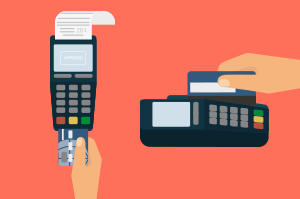While cash is still the single largest payment method for retail sales, credit and debit combined easily take the top spot, accounting for 48 percent of all transactions. With so much revenue processing through a credit card machine, it is important to find the right provider. Card processing allows customers to submit payments with credit, debit or mobile devices, depending on the setup. When selecting a service provider, it is important to ask the right questions and get transparency about rates and processes. Here are a few tips to help find the best card-processing vendor for you:
1. Address Security Concerns
Given the rise of data theft, particularly of credit card information, security is a major concern for any business. Some of the largest hacks in history targeted POS systems, and that bad publicity can be very detrimental for business. Be sure to discuss security protocols and systems with potential vendors before making a decision.
2. Get Transparent Rates and Fee Structures
The cost of accepting cards can be surprisingly high. While it is true that the bulk of the transaction cost comes from the interchange rates set by the credit card companies, card-processing vendors add a small fee on top. To get the best rate, it is important to research the current interchange rates and discuss transaction levels. High-volume, low-dollar amounts often do better with a higher percentage and lower transaction fee. For high-value transactions, the lowest possible percentage is a must.
3. Card Payment Processors Cater to Customers
Different card processors offer a different range of services. Some specialize in micro-transactions while others offer a complete set of payment solutions. The more payment options available to customers, the more likely they are to make a purchase. Accepting all major credit cards, debit cards and mobile payments is one way to make the most of credit-processing solutions. Discuss the options with potential vendors and make sure that all payment methods are available.
4. Convenience and Cash Flow
For businesses, one of the biggest benefits of cashless payments is the direct deposit into a business account. There is no need to worry about depositing cash or theft issues. The money moves seamlessly from the consumer to the business. This helps minimize the administrative cost of these sales and allows business owners to skip right to reconciliation.
5. Customer Service
Businesses prioritize customer service to their client base, and they expect quality customer service from their vendors. With a card processor, 24/7 availability is a must. While normal business hours might be the norm, many retail locations stay open late, travel for trade shows or open on holidays. A problem with a credit card machine can dramatically impact daily sales totals, so being able to contact a processor any time of the day or night is crucial for keeping sales numbers high.
While rates tend to be the first thing on the list when selecting a card processor, security lapses can actually be more expensive. Every item on this list is important when selecting a card processor. A failure in any area can result in missed opportunities and lagging growth. A good card processor can help grow a business and may even have mobile or e-commerce solutions available. When making the final selection, be sure to choose a company that can address all concerns, while offering a reasonable fee structure.











